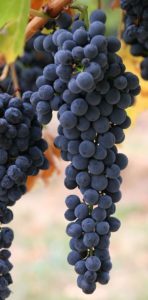Who was Og and how did he survive the Great Flood? What exactly were the Ten Trials of Abraham?What is the difference between Chokhmah, Binah, and Da’at (“Chabad”)? Which of the “Cosmic Shemittot” are we in? Where was the Garden of Eden? Find out the answers to these and other big questions in Sefer Beresheet:
Tag Archives: Noah’s Ark
Noah’s Ark and the Tower of Babel: Not What You Think!
Where did all the water for the Great Flood come from, and is it scientifically possible? Was Noah’s Ark a simple wooden vessel, or something far more complex and of another dimension? What did the post-Flood generations really find in Shinar, and was their Tower of Babel some kind of space ship? Find out in this class where we also discuss the secrets of the Holy Tongue, the “Watchers” and Nephilim, ancient technology, and why it is that most cultures from around the world have similar myths and ancient legends.
This class is based on the essay ‘Noah’s Ark and the Tower of Babel: Not What You Think! in Garments of Light, Volume One, available here.
Why Kiddush on Wine?
 In this week’s parasha, Nasso, the Torah commands that a nazir is to abstain from wine and any other grape products. Wine appears frequently in the Torah, and plays a huge role in Judaism. Every Shabbat and holiday is ushered in with kiddush on wine, and concludes with a wine havdallah. Every wedding has a blessing on wine under the chuppah, as does a brit milah, and in ancient times wine libations were brought in the Temple. What makes wine so special?
In this week’s parasha, Nasso, the Torah commands that a nazir is to abstain from wine and any other grape products. Wine appears frequently in the Torah, and plays a huge role in Judaism. Every Shabbat and holiday is ushered in with kiddush on wine, and concludes with a wine havdallah. Every wedding has a blessing on wine under the chuppah, as does a brit milah, and in ancient times wine libations were brought in the Temple. What makes wine so special?
The numerical value of “wine” (יין) is 70, a most significant number. It reminds us of the seventy names of God, of the seventy root nations of the world, and the seventy “faces” of Torah understanding. Our Sages famously stated that nichnas yayin, yatza sod, “when wine enters, secrets come out”. More than a simple proverb, it is a mathematical equation since the value of “secret” (סוד) is also 70. So, as seventy comes in, seventy comes out. On the surface level, the statement means that alcohol makes a person more likely to spill their secrets. On the deeper level, though, the Sages meant that one who drinks wine may be able to enter a mental state where they can uncover the secrets of Torah, and see it through all seventy faces. Wine can make “a man’s mind more receptive” (Yoma 76a).
Our Sages taught that wine is unique in that it defies the natural order: whereas other things degrade over time (as encapsulated in the second law of thermodynamics, the law of entropy, that the universe always tends towards disorder), wine improves and gets more valuable over time. Wine has another incredible scientific quirk: Japanese scientists researching electrical superconductors had a party in their lab and ended up accidentally discovering that wine makes certain metals superconductive!
Superconductivity refers to the property of being able to transmit electricity perfectly with no resistance and no energy loss. Generally, superconductivity requires cooling substances to near absolute zero (-273ºC). Some substances are able to superconduct at higher temperatures, around -90ºC, but even this is far too cold to be practical. Scientists around the world are therefore on the hunt for a room-temperature superconductor which, if found, would completely revolutionize the world. It would result in dramatic energy savings, and would allow for other cool phenomena like “quantum levitation”.
The Japanese scientists found that wine makes some things superconductive, especially iron-based compounds. And red wine especially was up to seven times more effective than other alcoholic beverages. No explanation for this has yet been found. It is all the more significant when we consider the central role that electricity plays in Jewish mysticism, and that our brains literally run on electrical signalling (suggesting how wine might make our brains more receptive to Torah secrets!) and that our bodies are full of iron, which makes our blood red, too.
While all of the above is fascinating, it does not explain why wine is so prevalent in Jewish rituals, especially in the recitation of every kiddush. What is the reason for wine? Continue reading
